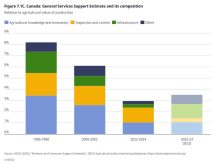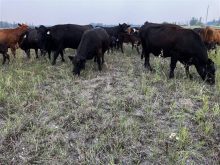The federal Conservatives must rethink their decision to close down the Rural Secretariat or create something to replace it, says the Federation of Canadian Municipalities.
The last 13 remaining employees at the Rural Secretariat were recently given their notices, spelling the end of the 15-year-old agency, which had a staff of 92 just a year ago.
The government praised its work, and promised to “invest heavily in providing essential programs and services to farmers and the agriculture industry.” But FCM president Claude Dauphin said rural Canada is about more than farming.
Read Also

The sneak peek of Manitoba Ag Days 2026
Canada’s largest indoor farm show, Manitoba Ag Days, returns to Brandon’s Keystone Centre Jan. 20-22, 2026. Here’s what to expect this year.
“We’re asking the federal government, now that they’ve abolished the Rural Secretariat, what’s the vision of Canada for rural communities?” Dauphin said.
His federation, which represents about 2,000 municipalities across Canada, recently passed an emergency resolution calling on Ottawa to develop “a new, practical accountable policy framework for rural issues.”
Rural advocates say the government doesn’t understand the nature of rural Canada.
“I call it a backwards step,” said Bill Reimer, past chair of the Canadian Rural Revitalization Foundation and a Concordia University professor.
The foundation was among those that urged Ottawa to adopt a “whole rural policy,” which ultimately led the former Liberal government to create the secretariat.
“Most of the policies in the federal government are formulated along sectoral lines,” Reimer said.
“You’ve got agriculture, forestry, education and so on. In rural areas, these things all come together. In a small town you can’t easily separate out agricultural policy from education, because people’s lives involve both.”
The secretariat did valuable work, he said. For example, it has been maintaining a Community Information Database, and there’s no word who might take it on, said Reimer.
Like the now defunct long-form mandatory census, the database provided critical information for rural policy development, he said.
“That was really the only major source of reliable information for small towns,” Reimer said.
The Rural and Small Town Analysis Bulletin, a publication of Statistics Canada also ceased publication a year ago.















